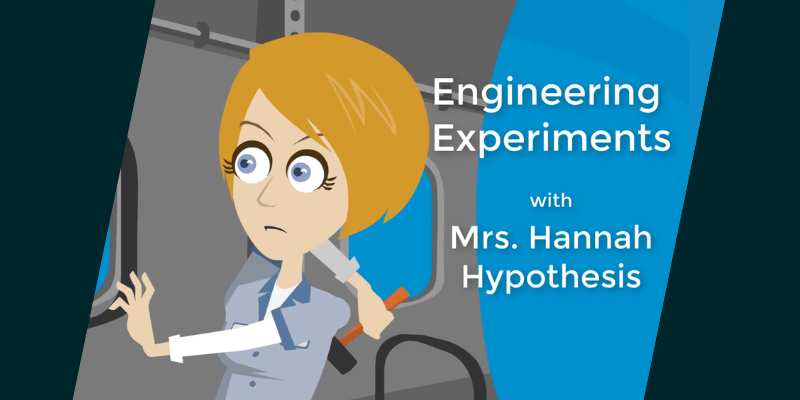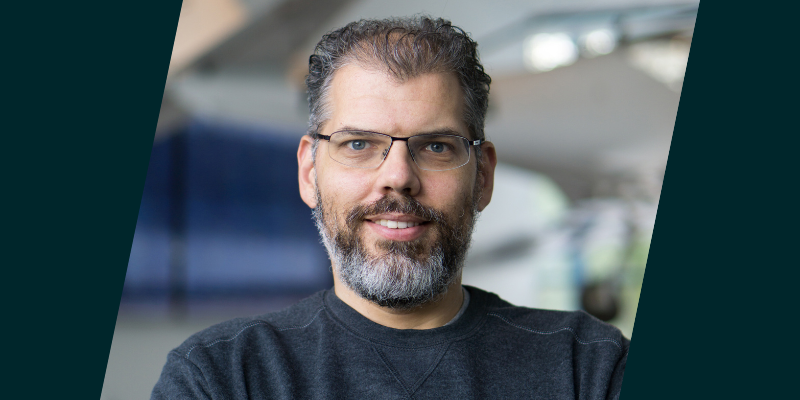“There’s Nothing Wrong with Being Wrong”: A TU Delft Course Is Teaching Everyone How to Learn from Failure
Discover how an edX Prize-nominated course from TU Delft, a technology-focused university in the Netherlands, is using aircraft and spacecraft design to illustrate the benefits of experimenting and making mistakes.
Professor Calvin Rans wants people to learn how to engineer success out of failure—in aircraft and in life.
After teaching thousands of undergraduate students at Delft University of Technology (TU Delft) in the Netherlands, Professor Rans and his fellow instructors became acutely aware of how unprepared most people are to learn from failure, especially young adults.
"Failure is an essential component of the scientific method, but when they teach you about it in school, they don't really discuss that part,” he says. “They don't explain the magic that can happen when your hypotheses get disproven.”
Rans and his colleagues’ astute observations about their students compelled them to transform one of the university’s most popular on-campus courses into a massive open online course (MOOC) on the edX platform: Introduction to Aerospace Structures and Materials.
"Through our nearly 10-year partnership with edX, TU Delft has reached over three million learners across the globe, so we knew what the platform could do for us,” he explains. “By choosing to adapt this particular course to an online format, we wanted to magnify the role of failure in science and engineering in order to de-vilify it. The topic seemed like the perfect fit, especially since engineers design aircraft and spacecraft considering all the ways they could eventually fail."
Throughout their edX course—which was named one of 10 finalists for the 2021 edX Prize—Rans and his team aim to sharpen learners’ creativity and critical thinking skills by exploring how failure has both informed and advanced aviation and aircraft design. Learners’ online educational journey inspires them to embrace the beauty of asking questions, testing assumptions, and learning from mistakes.
Starting with a Focus on Vital Human Skills
Given the complexity of the course's subject matter, turning it into a MOOC required the instructors to completely rethink their approach to teaching and course design.
"Both versions of the course center around the same content, but with different goals," explains Rans (pictured above). Instead of prioritizing rote learning of the subject matter, for the online version Rans and his team wanted to focus on developing vital human skills—like methodical inquiry, problem solving, and persevering in the face of adversity—through learner experimentation. "Our primary goal online was to help learners overcome their fear of failing by giving them more practice in flexing those skills."
To encourage learners to begin thinking like engineers, the course leverages the world’s ever-growing fascination with the aerospace industry. "With companies like SpaceX and Blue Origins making headlines today, people are interested in aircraft and spacecraft now more than ever," he says. "But while structures and materials are the building blocks of all these incredible flying vehicles, they don't usually get the attention that topics like aerodynamics, performance and control, or sustainable fuels do. So our MOOC also aims to draw more awareness to this under-appreciated part of the field."
Making a Complex Subject Universally Appealing
To make topics like force-deflection behavior and welding methods as engaging as possible, the instructors incorporated a variety of unique features into the course. One standout example is Hannah Hypothesis (pictured below), a cartoon character who regularly pops up to talk about the scientific method and conduct experiments on principles of aircraft and spacecraft design.
"We created this character to introduce hypotheses that would intentionally be proven wrong in her experiments," says Rans. "Through Hannah, we wanted learners to understand that, as long as you're learning, there's nothing wrong with being wrong. Failures are teachable moments and they’re an essential component of innovation."
Hannah's experiment using melted chocolate to explore how defects can happen during metal casting has become a favorite among learners, because they can easily recreate it at home. "You melt down chocolate, pour it into molds, and then cut the solidified pieces in half to observe variations in the material, air bubbles, and contaminants visible on the cross-section," explains Rans. "It's a simple experiment, but learners relate to it much better than the instructors talking about a big pot of molten metal in a foundry. People enjoy the exercise because they understand the beauty of taking something complex and simplifying it."

The creative approaches Rans and his team took with their online course paid off. "We found that undergraduate students who take the MOOC prior to joining us full-time at TU Delft generally come better prepared to in-person classes," he says. "The online course has also inspired other learners to enroll in our on-campus master’s program in Aerospace Structures and Materials. And there's been a notable uptick in international applicants to our department."
Other pleasant surprises materialized once they launched the course. While the curriculum was originally intended for high school and college-aged audiences, the instructors soon discovered a considerable number of mid-career learners registering for the MOOC. Learning cohorts were also much more diverse than they expected. "We’ve had plenty of engineering students,” Rans says, “but we’ve also seen people from arts and humanities backgrounds take the course simply because they’ve always thought machines that can fly are cool."
Inspiring Perseverance and a Passion for Lifelong Learning
Beyond inspiring learners to experiment, Rans is grateful that the MOOC format gave his own team the freedom to do the same. "Creating and teaching this online course has been a joy,” he beams. “It has allowed us to have fun and try out things we can't do on campus because we’re constrained by grades and final exams. Instead of teaching material that’s assessed on paper, we can focus on human skills that are equally important but more difficult to measure with a test."
For those interested in entering the aerospace engineering field, where materials and technologies are constantly evolving, Rans believes this course will equip them with the skills and motivation to keep pushing past inevitable instances of failure on their way to impactful discoveries and career success.
.png?width=800&name=EDX%20QUOTE%20CARD%20TU%20Delft%20(1).png)
"The pace of change in aerospace technology is only going to keep accelerating. Professionals in the field will find that, in order to stay up to speed, they'll need to continuously train and keep their knowledge fresh," he says. “This course is a great way to ignite that passion for lifelong learning in younger generations, or really anyone at any age.”
From an even bigger-picture perspective, Rans identifies deeply with edX's mission to make high-quality education more accessible and affordable for all kinds of learners. "Universities shouldn’t be gatekeeping knowledge. We need to redefine what education is and where it happens—and we need to make knowledge more available to everyone," he says. "Online learning platforms like edX will play a crucial role in encouraging universities to share more of what they teach with a global audience."
Related Content: Partner Impact


